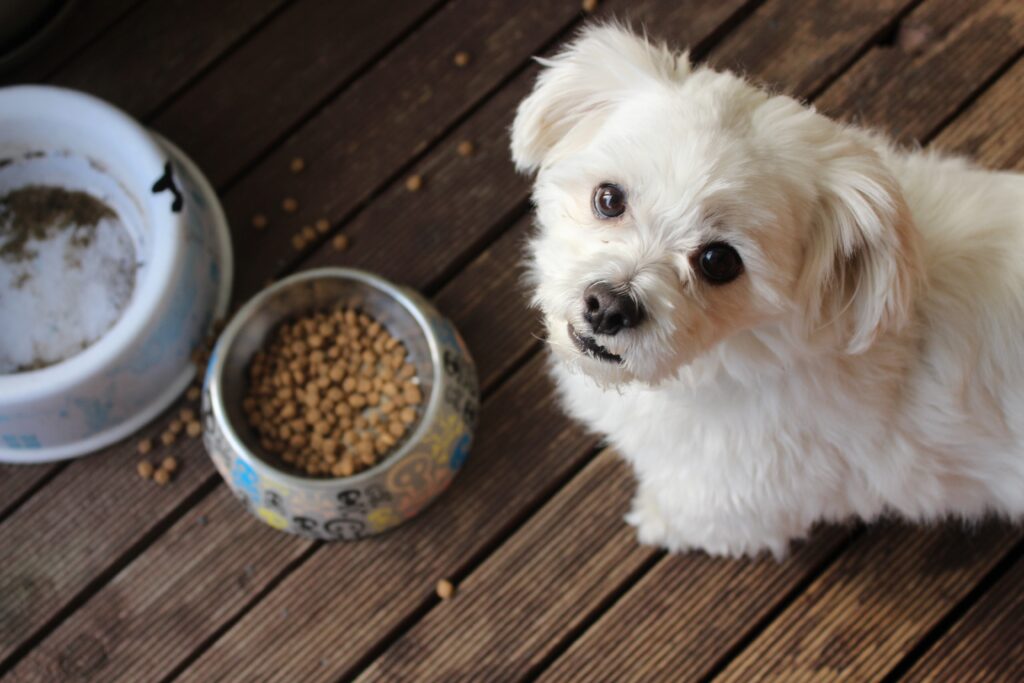As much as we love our furry friends, it’s important to remember that their health and well-being depend on us. And one of the most critical aspects of a dog’s overall health is its diet. Choosing the right food for your canine companion can be a daunting task with so many options available in today’s market. To help you navigate this tricky terrain, we’ve put together a comprehensive guide Do & Don’t About Dog Food when it comes to feeding your precious pooch. So let’s dive in and make sure your furry friend is getting all the nutrients they need!
Food Is a Basic Part Of Dog Food Nutrition
Dogs are man’s best friends, and as pet owners, it is our responsibility to make sure that they receive proper nutrition. Just like humans, dogs require a balanced diet to sustain their health and energy levels. And the foundation of such a balanced diet for your furry friend is good quality food.
Choosing high-quality dog food can be tricky with so many options available in the market today. The most important factor to consider when selecting dog food should be the ingredients used in its production. It’s crucial to look out for labels on packaging and ensure that the food contains high-quality protein sources from animal meat or fish.
Additionally, dogs need essential vitamins and minerals to maintain healthy bones, teeth, and general body functions. Look out for foods that contain these vital nutrients such as calcium, phosphorus, zinc, and Vitamin A.
It’s worth noting that feeding your dog human table scraps may not provide them with all the necessary nutrients required by their bodies since their digestive systems function differently than ours do. Stick strictly to commercial pet foods recommended by veterinarians until you have consulted with your vet about other possible diets or supplements suited specifically for your pooch’s dietary needs.
Remember: Food is a critical part of dog nutrition; choose wisely!
It Must Pay To Attention To the Food Of the Dog
When it comes to taking care of our furry friends, paying attention to their food is essential. Dogs require a balanced diet that provides them with the necessary nutrients and energy to stay healthy and active.
The first thing you should pay attention to when choosing your dog’s food is the ingredients list. Make sure that there are no harmful additives or preservatives in the food you choose for them. Look for real sources of protein like chicken, beef, or fish.
Another important factor is considering your dog’s specific dietary needs based on factors such as age, breed size, activity level, and any underlying health issues they may have. Puppies need more calories than adult dogs due to their growth requirements while senior dogs may benefit from food lower in fat content.
It’s also crucial not to overfeed your dogs as obesity can lead to several health problems such as joint pain and heart disease. Always follow the feeding guidelines provided by the manufacturer based on your pet’s weight.
Paying attention to what goes into your dog’s bowl can significantly impact their overall well-being. Ensuring they get proper nutrition through a balanced diet tailored specifically to their individual needs will help keep them happy and healthy throughout all stages of life.
Do About Dog Food
1. Read the ingredients list
When choosing dog food, it’s essential to read the ingredients list carefully. Look for high-quality protein sources such as chicken or beef, and avoid foods that contain fillers like corn or soy.
2. Consider your dog’s age and activity level
Different dogs have different nutritional needs based on their age and activity level. Puppies need more calories than adult dogs, while senior dogs may require a lower-calorie diet. Active dogs also need extra nutrients to fuel their energy levels.
3. Introduce new foods slowly
If you’re switching your dog’s food brand or type, it’s crucial to do so gradually over several days to prevent digestive upset.
4. Provide fresh water at all times
Dogs need access to clean drinking water throughout the day – particularly if they eat dry kibble.
5. Store food correctly
Dog food should be stored in a cool dry place away from direct sunlight to maintain its quality and freshness.
By following these simple tips, you can ensure that your furry friend is getting the right nutrition they need for optimal health and well-being!

Don’t About Dog Food
1. Don’t Overfeed Your Dog
Feeding your dog too much food can lead to obesity, which in turn can cause a host of health problems such as joint pain and diabetes.
2. Don’t Feed Dogs with Table Scraps
Human food is not always safe for dogs to eat. Some foods are toxic and could cause serious harm or even death if ingested by your pet.
3. Don’t Give Bones to Your Dog
Bones can splinter and become lodged in the digestive tract, causing blockages that may require surgery. It’s best to stick with chew toys specifically made for dogs.
4. Don’t Ignore Changes in Your Dog’s Eating Habits
If you notice any changes in your dog’s eating habits, it could be a sign of an underlying health condition that requires medical attention.
5. Don’t Buy Cheap or Low-Quality Food
Cheap dog food often contains fillers, preservatives, and artificial colors that provide little nutritional value for your pet. Invest in high-quality dog food that meets their specific needs.
Remember to always prioritize the health and well-being of your furry friend when it comes to their diet!
Read More: Why Is My Puppy Breathing So Fast?
Final Notes
To sum up, food is a crucial part of dog nutrition and must be given due attention. Always make sure to provide your furry friend with the right kind of food that meets their nutritional needs. Remember to follow the dos and don’ts of dog food mentioned in this article.
By avoiding common mistakes like feeding them table scraps or giving them too many treats, you can ensure that your furry friend stays healthy and happy for years to come. Always keep an eye on their weight, digestion, and overall health to determine if any changes are needed in their diet.
It’s always best to consult with a veterinarian before making any significant dietary changes for your pet. With proper care and nutrition, you can help improve the quality of life for your four-legged companion!

